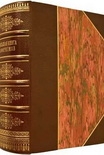Libertie, Kaitlyn Greenidge [top inspirational books txt] 📗

- Author: Kaitlyn Greenidge
Book online «Libertie, Kaitlyn Greenidge [top inspirational books txt] 📗». Author Kaitlyn Greenidge
That afternoon, she gathered me and Lenore in her examination room and told us that she had decided to run a proving.
A proving is when you bring together a small group of volunteers to take a new dose, a new remedy. It is a way to test what can be a cure. Everyone tracks their reactions to the substance, minutely, and then you compare notes. With enough provings, you begin to understand the cures that are available to you, what will produce those reactions in the body, that push and pull that homeopathy rests on.
Since Mama was a colored woman, other homeopaths did not invite her to partake in their provings. She had to read the medical journals carefully, comparing articles and footnotes, making her own notations. She was looking for their mistakes. She had been doing this for years—it was what she often did late at night, when the books were done and committee work put away.
For this, her first proving, she told us that she wrote away to a man out west, a scientist like her. A colored naturalist who had recently come back from West Africa, where he had taken an all-black group of explorers. A wondrous thing. I remembered reading aloud an article to her about it a few months earlier. It had appeared in the Mystery—a newspaper Madame Elizabeth sometimes brought us with one of her emptied coffins. There, on the front page, was an account of his tour. I noticed the article because it had the place I had been named for, my father’s dream, in the title: “Martin Delany’s Exploration of Liberia.”
At first, when I’d read it aloud, Mama, as always, was skeptical of any talk of homelands and empires—“It is futile to imagine, Libertie,” she said. But she made me stop and read one line, three times, to make sure she understood:
The Emigration Board of Commissioners has asked Mr. Delany to make a scientific inquiry into the topographical, geological and geographic qualities of the Niger Valley to determine whether it can host a colony of American Negroes.
So Mama had remembered him, and had sent him her secret letter, and now, in the palm of her hand, she had the results.
Delany had sent a small package, passed hand to hand, through every African Methodist Episcopal preacher in the North. All the way from Ohio, to us, in Kings County. Reverend Harland himself had delivered it to Culver’s counter, though he’d felt a need to write, underneath Delany’s hand, the admonishment For good, Doctor.
Mama bristled at that. “As if it would be for anything else.”
Now, in her examination room, Mama had me unwrap the package for her. I pulled at the twine and the paper—“Gentle now, Libertie, gentle with your hands”— until it fell open. Wrapped in the brown paper were ten dried seahorses, curled over one another. Their skin was a low, dusky yellow, the same color as the oranges we studded with cloves every Christmas and left to desiccate in our linen trunk to keep our good cloth smelling sweet. I looked up at Mama. “Just as Delany promised,” she said. “He’s a good man.”
The very first task was to grind the dried seahorses into a gray powder, which smelled like the bottom of a privy and clung to the palms of your hands in a fine, damp silt.
“‘The male seahorse can be found in the estuary of the Niger River,’” Mama read from Delany’s letter, as Lenore ground and I was instructed to transcribe into a notebook, what was to be the experiment’s log. “‘He is a solitary creature. He does not swim in packs. He only interacts with his female counterpart to mate. He floats through the dark, temperate in-between world of brackish water alone, with only his secret for creation.’” Here, Mama broke off. “Delany believes he is some sort of poet, I suppose,” she said, and frowned. She did not like flights of fancy. She especially resented them when people tried to mix them up with science.
When Lenore had finished grinding, we moved on to dilution. Mama had told us she would begin this trial with a 2C dilution, which meant we added one hundred grams of water to one gram of seahorse, and then another hundred grams, until we had our solution.
Finally, Lenore passed the vial over to me for the succussion. I took the vial and slapped it against the special board of leather and horsehair Mama had in her office for the purpose.
As I pumped my arms up and down, shaking the cure, Mama read some more. “‘The male seahorse is a virtuous beast, romantic and loyal, steadfast in his heart and in his affections, the moral light of the animal kingdom. The male seahorse is not a profligate; he is frugal with his affections. When he mates, he mates for life. Every morning, he wakes and performs a dance with his partner—it is not a mating dance, but a dance that reaffirms their commitment to each other and the deep affection and love between the two. If he loses his mate, he will remain alone for the rest of his short life, unable to replace her with another.’”
Here, Mama stopped. “That’s it,” she said. “Make sure to get that part when you write the notes, Libertie.”
When the solution was done, Mama told me to put it on her highest shelf. And then she sat down and wrote a letter of apology to Ben Daisy.
It did not seem to be a great burden for her to apologize, and I remember thinking this strange. I had never seen my mother do





Comments (0)